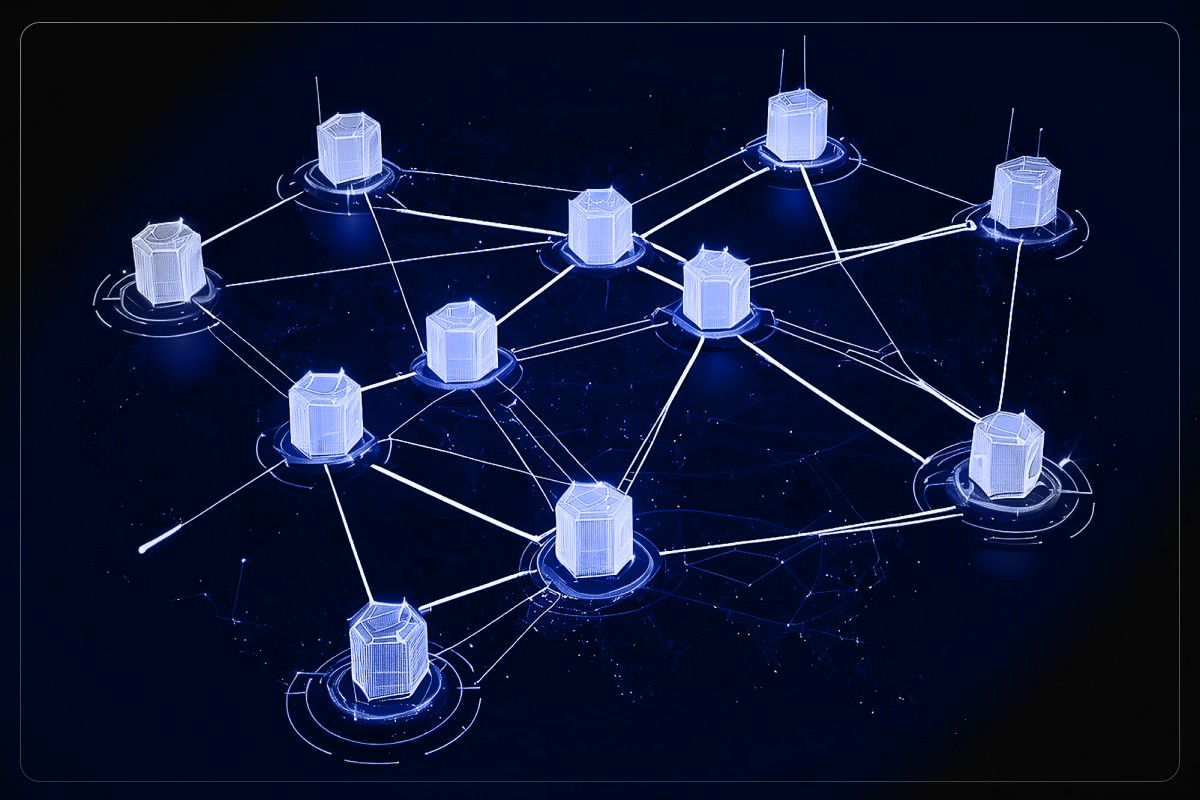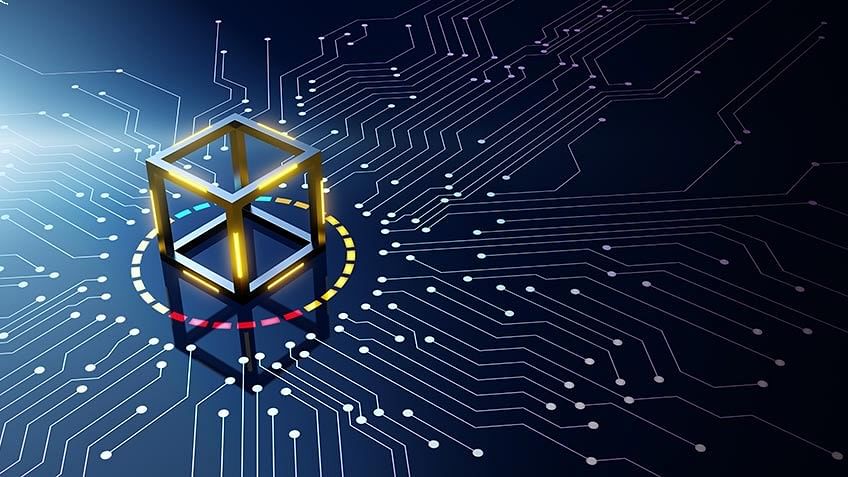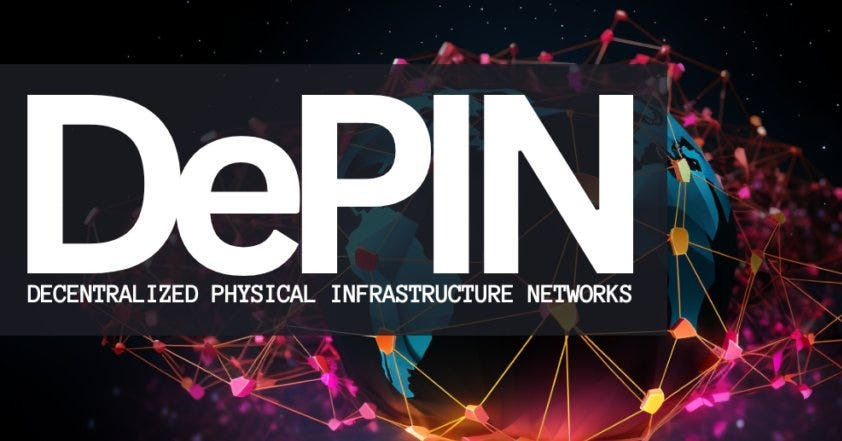DePIN Networks: The Future of Decentralized Internet. In today’s rapidly evolving digital landscape, the concept of a decentralized internet, powered by DePIN (Decentralized Physical Infrastructure Network), is gaining momentum. DePIN represents a shift away from centralized control, aiming to create a more secure, private, and equitable digital world. This blog explores the importance of DePIN, its technological foundations, advantages, challenges, and future prospects.
Understanding DePIN Networks
DePIN networks are decentralized systems designed to provide internet connectivity and services without relying on centralized authorities. These networks leverage blockchain technology, cryptographic protocols, and peer-to-peer (P2P) networking to ensure data privacy, security, and transparency. Unlike traditional internet structures controlled by a few major entities, DePIN empowers users to participate in a distributed network where data is owned and managed collectively.
Evolution of Internet Infrastructure
The internet has come a long way since its inception. Initially, it was a decentralized network designed to withstand partial outages. However, over time, it evolved into a centralized structure dominated by a handful of tech giants. This centralization has led to numerous issues, including data breaches, censorship, and loss of privacy. The rise of blockchain technology and the decentralized web (Web3.0) has reignited the vision of a decentralized internet, paving the way for DePIN networks.
Advantages of DePIN Networks
Enhanced Security and Privacy
DePIN networks employ robust cryptographic protocols to secure data transmission and storage, minimizing the risk of unauthorized access and cyberattacks. This enhanced security framework ensures that users’ personal information remains private and protected.
Resistance to Censorship
In centralized internet models, a single point of control can lead to censorship and content manipulation. DePIN networks, being decentralized, are inherently resistant to such practices. They empower users to access and share information freely without fear of interference or censorship.
Increased Transparency and Trust
Blockchain technology, a core component of DePIN, provides an immutable ledger of transactions and data exchanges. This transparency fosters trust among users, as they can independently verify the integrity of the network and its operations.
Cost Efficiency and Resource Distribution
DePIN networks distribute resources more efficiently by leveraging idle computing power and bandwidth from participating nodes. This decentralized approach reduces the need for costly centralized infrastructure, making internet services more affordable and accessible.
Invest in SRP Token to unlock a decentralized future and secure your digital assets. Embrace the power of blockchain technology and earn rewards by staking SRP Coin today!
Key Technologies Behind DePIN
Blockchain
Blockchain is the backbone of DePIN networks, providing a secure and transparent way to record and verify transactions. It eliminates the need for intermediaries, reducing costs and enhancing trust.
Cryptographic Protocols
Cryptographic techniques ensure the confidentiality, integrity, and authenticity of data. These protocols are crucial for secure communication and data storage within DePIN networks.
Distributed Ledger Technology
Distributed ledgers, like blockchain, enable decentralized record-keeping. They ensure that all participants have a consistent view of the data, enhancing transparency and trust.
Peer-to-Peer (P2P) Networking
P2P networking forms the foundation of DePIN, allowing nodes to communicate directly without intermediaries. This decentralized approach enhances resilience and reduces the risk of network failures.
Use Cases of DePIN Networks
Decentralized Finance (DeFi)
DePIN networks support decentralized financial applications that enable peer-to-peer transactions, lending, and borrowing without traditional financial intermediaries.
Secure Communication Platforms
DePIN networks facilitate secure and private communication platforms, where users can exchange messages and data without fear of surveillance or interception.
Distributed Cloud Storage
Decentralized cloud storage solutions powered by DePIN offer secure and cost-effective alternatives to traditional cloud services. Users can store and retrieve data from multiple distributed nodes.
Decentralized Social Networks
Social networks built on DePIN principles prioritize user privacy and data ownership, allowing individuals to connect and share content without centralized control.
Supply Chain Management
DePIN networks enhance transparency and traceability in supply chains by providing a decentralized ledger of transactions, ensuring the authenticity and provenance of goods.
Challenges and Limitations
Scalability Issues
DePIN networks face scalability challenges, as the decentralized nature can lead to slower transaction speeds and increased latency. Solutions such as layer 2 scaling and sharding are being explored to address these issues.
Regulatory and Compliance Challenges
The decentralized nature of DePIN networks poses regulatory challenges, as existing legal frameworks are often designed for centralized entities. Navigating these regulations requires collaboration between industry stakeholders and policymakers.
User Adoption and Education
Widespread adoption of DePIN networks requires user education and awareness. Many individuals are unfamiliar with decentralized technologies, necessitating efforts to simplify and demystify their use.
Technical Hurdles and Interoperability
Ensuring interoperability between different DePIN networks and existing internet infrastructure is a technical challenge. Standardization efforts are needed to enable seamless integration and communication.
Future Prospects of DePIN Networks
Emerging Trends and Innovations
The future of DePIN networks is bright, with ongoing innovations in blockchain technology, cryptography, and P2P networking. These advancements will further enhance the capabilities and performance of decentralized networks.
Potential Impact on Global Internet Usage
As DePIN networks mature, they have the potential to revolutionize global internet usage. By providing secure, private, and affordable internet access, they can bridge the digital divide and empower underserved communities.
Predictions for the Next Decade
In the next decade, DePIN networks are expected to become more mainstream, with increased adoption across various sectors. The integration of artificial intelligence and machine learning could further enhance their functionality and user experience.
Role of DePIN in Advancing Web3.0
DePIN networks are at the forefront of the Web3.0 revolution, which aims to create a decentralized and user-centric internet. By enabling secure and transparent interactions, DePIN will play a pivotal role in shaping the future of the digital landscape.
Case Studies
Successful Implementation of DePIN in Various Industries
Several industries have successfully implemented DePIN networks to address specific challenges. For instance, the healthcare sector uses decentralized networks to secure patient data and improve interoperability between different systems.
Lessons Learned from Early Adopters
Early adopters of DePIN networks have faced numerous challenges and achieved significant successes. Their experiences provide valuable insights into best practices and potential pitfalls in implementing decentralized technologies.
Real-World Impact and Benefits
DePIN Networks, the Future of Decentralized Internet, impact is evident in the improved security, privacy, and efficiency of various applications. From finance to communication, DePIN is transforming how we interact with digital services.
Conclusion
In conclusion, DePIN Networks: The Future of Decentralized networks represent the future of the internet, offering enhanced security, privacy, and efficiency. By decentralizing control and empowering users, DePIN is poised to revolutionize the digital landscape. As we move towards a more decentralized future, understanding and embracing DePIN will be crucial for building a secure and equitable digital world.

 China
China Russia
Russia India
India









